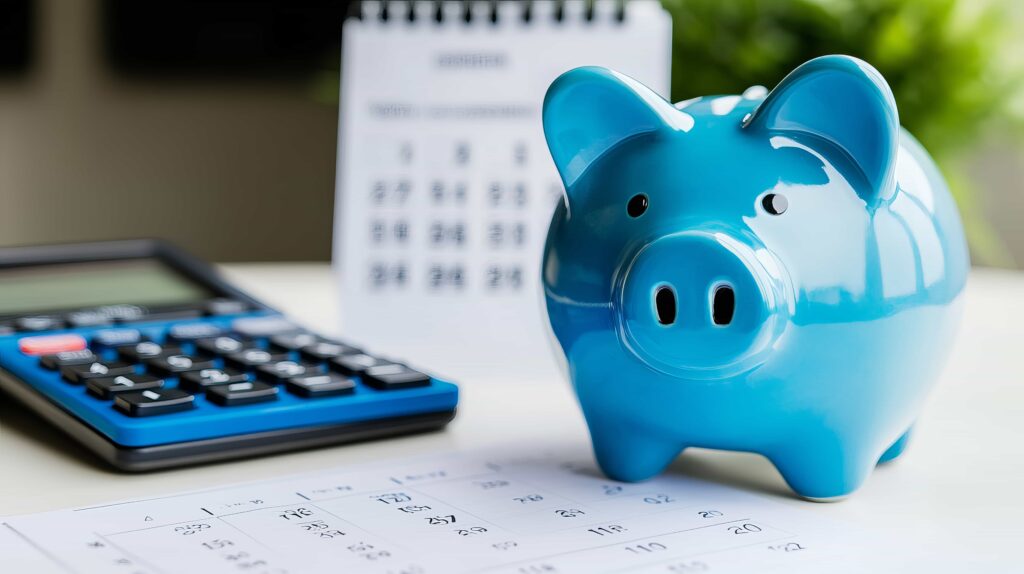Starting out on your own means learning new skills, and managing money is near the top of the list. Even small money mistakes can become big setbacks if you aren’t careful. It’s easy to ignore good advice when you’re just getting comfortable, but recognizing these habits early saves you stress and cash.
Many young adults make decisions based on what feels urgent or popular rather than thinking ahead. Financial choices in your early years shape your future opportunities, from where you live to how you respond to emergencies. Planning now lets you sidestep regrets later.
You don’t need complex math or insider knowledge to avoid the classic money mistakes that catch people off guard. Let’s break down the smartest moves, real scenarios, and practical steps, so you won’t stumble into the most common traps.
Set Realistic Budgets: Lay Down the Groundwork for Safe Spending
Figuring out your budget before spending is the most useful way to keep finances under control. Treat it like setting a GPS before driving—a map keeps you on track, prevents surprise detours, and sidesteps costly money mistakes.
When every paycheck comes in, set aside a few minutes to outline where each dollar should go. This habit streamlines decision-making, builds confidence, and removes a big source of anxiety during busy months.
Allocate Needs First, Then Wants
Start by jotting down essentials—rent, groceries, utilities. If a monthly bill always lands on the 1st, enter that as a fixed need. Assign concrete amounts and avoid guessing.
List “wants” after actual needs. This ensures you never cut into important payments for unnecessary spending. A typical phrase: “I’d love new headphones, but groceries come first this month.”
Think of your needs as the foundation and wants as the decorations. Building on a solid foundation means fewer money mistakes, and more peace at the end of each month.
Mini-Checks Keep You on Track
On the weekend, do a 10-minute check-in. Pull up your banking app and read out the last five purchases. Ask, “Did these match my plan?”
If you see the same types of surprise charges (like coffee or apps), make a small tweak in next month’s budget. Each check-in helps you steer back to your original plan.
Picture your budget as a road—these mini-reviews keep you from veering into ditches that lead to larger money mistakes down the line.
| Expense Type | How to Track | Usual Pitfall | Next Step |
|---|---|---|---|
| Housing | Schedule monthly auto-pay | Missing a rent deadline | Confirm due date on calendar |
| Groceries | Set a weekly budget limit | Spending too much on snacks or eating out | Plan meals in advance |
| Utilities | Use bill reminders | Late payment fees | Automate payments where possible |
| Entertainment | Monitor receipts and bank app | Subscription creep | Review subscriptions monthly |
| Emergency Fund | Direct deposit into savings | Not saving regularly | Automate transfers each payday |
Recognize Lifestyle Inflation: Keep Preferences in Check as Income Rises
Increasing your earnings can feel empowering, but it’s easy to fall into “lifestyle inflation,” where wants begin to masquerade as needs. Nipping this behavior early prevents a cycle of earned more, spent more—one of the most overlooked money mistakes.
Pretend your salary stayed the same even after a raise. Imagine hearing yourself say, “My old apartment was good enough, so I’ll bank the difference instead of upgrading right away.”
Rule for Stopping Lifestyle Creep
When your monthly take-home pay jumps, only allow a small upgrade. Try this script: “I’ll treat myself to one new thing, but save or invest the rest right away.”
Small, conscious upgrades—one subscription, not five—reinforce long-term habits. Record each decision in your notes, so you’re honest about changes.
- Balance upgrades against long-term goals: List what extra cash could accomplish over five years for clear motivation.
- Pause before new recurring expenses: If you say, “Am I still happy next year?” you’ll stop many money mistakes before they start.
- Favor free experiences: Walks, visits, and meet-ups offer connection without an extra bill.
- Invest in skills, not stuff: Spend on workshops or books with long-term payback instead of single-use items.
- Share your upgrade plan: Tell a friend what change you made, encouraging accountability and dialogue about money choices.
Expect growing social pressures, but resist upgrading every time a peer does. Money mistakes multiply when success is measured by appearances instead of savings or freedom.
Use Income Boosts for Savings First
Direct raises and bonuses into dedicated savings accounts. Limit yourself to one-out-of-three times allowing a new discretionary purchase with bonus money.
Try a split: “If I get $600, $400 goes into savings, and I can use $200 guilt-free.”
- Set recurring auto-transfer rules: This guarantees bonus cash works for your future.
- Ask, “Will this be important in three months?”: Let this question veto fleeting purchases.
- Set aside for annual expenses: Prepare for insurance, license renewals, or travel as soon as bonus money arrives.
- Label savings for motivation: Rename accounts “Emergency Fund” or “Vacation 2026” in your banking app.
- Keep evidence: Save digital or paper confirmation of each move for quick visual progress.
Celebrate savings milestones—a $1,000 fund is a major win, and avoiding money mistakes helps you stack up these wins much sooner.
Understand Credit: Avoid Long-Term Consequences from Short-Term Decisions
Credit cards and loans are tools, not free cash. Learning their mechanics shields you from money mistakes that haunt your finances for years. Think: “I’m borrowing from my future self.”
Credit Reports and Scores in Real Life
Your credit score affects what you pay for a phone or car. For example, Jane applied for a new apartment but was rejected when her history showed missing payments from college credit cards.
Use reminders for every due date. If you’re unsure, review your credit report each quarter for mistakes. This keeps both your score and your options healthy.
Watch for too many new cards: Each inquiry is a flag. Five new cards in a year might prompt lenders to ask, “Why so many?” instead of “Welcome aboard.”
Maintain a Debt Repayment Order
If you carry balances, always pay at least the minimum on time. Prioritize high interest first, but never ignore smaller bills—small balances can cause bigger credit hits than large ones sometimes.
Create a “debt calendar.” Block out specific paydays to tackle each bill. Imagine checking off a list, one line at a time, and seeing the debt shrink steadily.
Keep visual reminders—notes on your fridge, progress bars on your phone, or a simple checklist posted above your desk. Each marker reduces anxiety and reveals the results of avoiding these common money mistakes.
Avoid Easy Credit Traps: Stop Debt Before It Starts
Store cards, “buy now pay later” offers, and new lines of credit can seem harmless at checkout. Each one, if misused, invites money mistakes that quickly snowball into stress and lost flexibility.
Recognize Marketing Hooks and Delays
When you hear, “No payments for six months!” it’s easy to think, “I’ll handle it later.” This kind of delay is exactly what marketers count on. Time slips by, and balances quietly grow.
Treat every delayed payment as already due. If you wouldn’t pay cash today, skip the deal. Use reminders for due dates, and put store card purchases on your main budget sheet.
Avoid stacking offers: “I don’t need three store cards because one benefit isn’t worth compounding fees.” Limiting open cards keeps your spending visible and manageable, reducing the risk of money mistakes.
Set a Personal Rule for New Credit
Before accepting a new credit offer, write this sentence: “This is not free money. I repay with work hours and future plans.” This mental nudge adds friction and clarity.
Limit new accounts to one per year, unless consolidating for a better interest rate. This gives you space to observe, review, and correct habits before compounding problems.
Use only what fits your budget’s line for credit repayments. If paying $40 a month strains your plan, pause and revisit your priorities. Every extra card multiplies chances for money mistakes.
Establish Emergency Savings Early: Build Cushion Before Risk Arrives
Having a dedicated emergency fund transforms stress into confidence. Even a few hundred dollars offers a sense of control when the unexpected interrupts plans and exposes past money mistakes.
Set up a transfer system. Whenever you receive income, shift a fixed dollar amount to your savings account before spending on leisure or routine bills.
Make It Automatic for Consistency
Create a rule: “Save $50 every payday, even if I want to spend it elsewhere.” Let automation do the heavy lifting, reducing temptation and inconsistency.
Label your emergency fund visually—set a special name in your banking app or post a progress chart someplace visible. This helps the habit become sticky and cuts down reliance on willpower.
Resist raiding this fund for non-emergencies. If tempted, write down your intended use and wait 24 hours. This pause averts impulsive withdrawals many money mistakes start with.
Chart a Safe Path Forward with Smart Money Habits
Consistent awareness and informed action keep money mistakes from derailing your goals. Each small, intentional decision you make today builds resilience, security, and room for growth in your financial journey.
Your future self will thank you for every line you write in your budget, every pause before spending, and every automated transfer. These habits compound quietly but powerfully, shaping freedom and choices years down the road.
Make these lessons part of your routine, share tips with friends, and check in with yourself monthly. Together, these steps will let you steer clear of money mistakes and create lasting financial peace.


